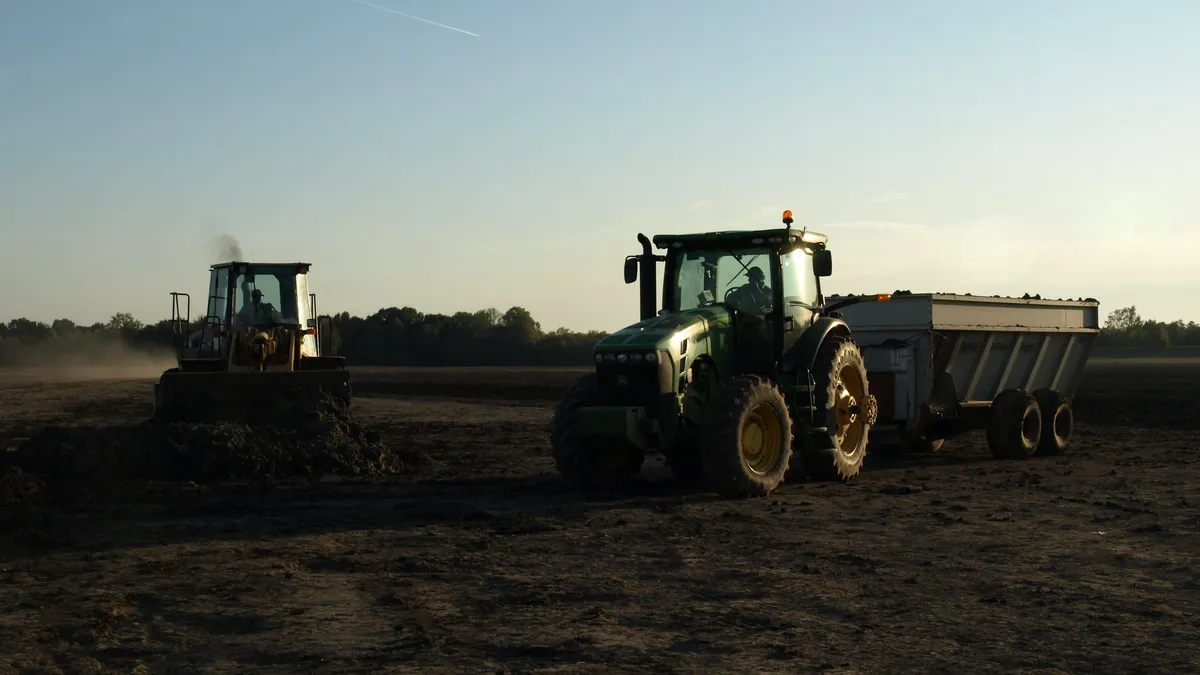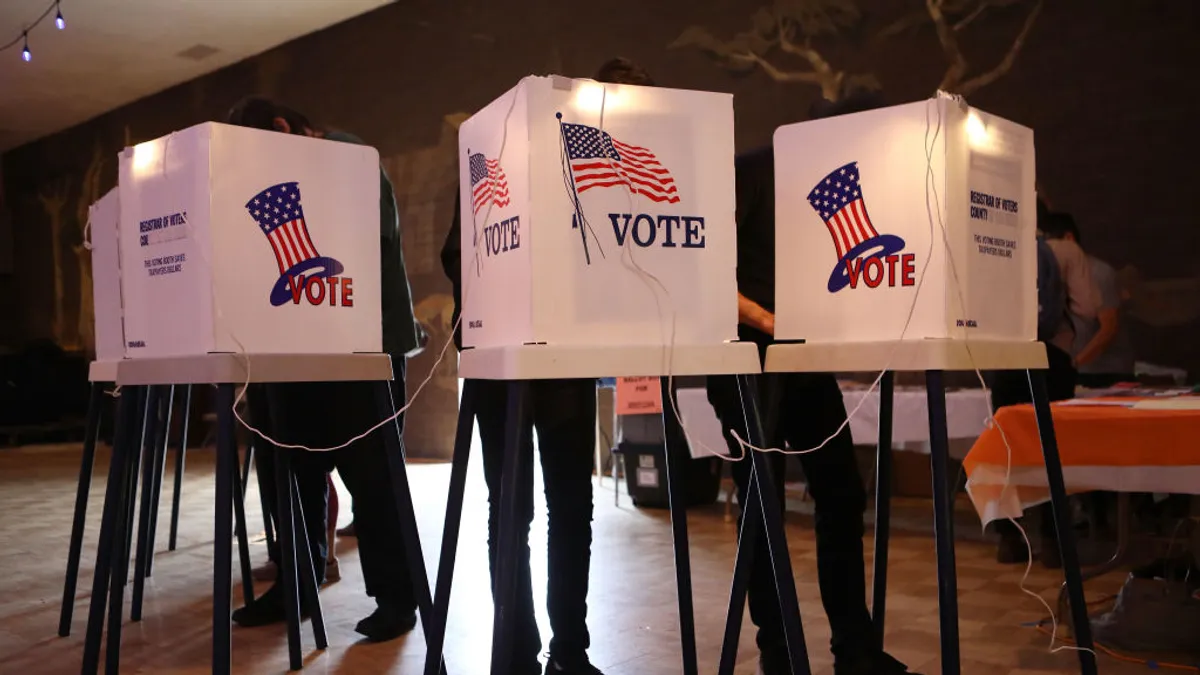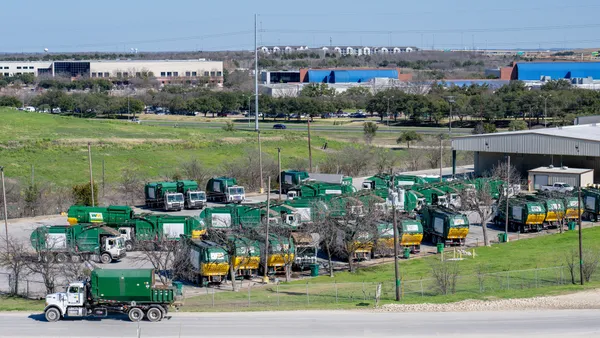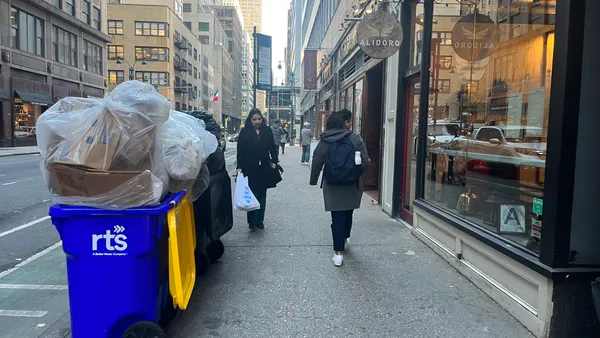UPDATE: Senate Bill 366, which would allow Indiana counties to eliminate their solid waste management districts, was cleared by the Environmental Affairs Committee on Monday in a 6-3 vote and will now move to the full Senate for a vote.
Sen. John Broden, who cast one of the "no" votes, believe there should be more input from town officials. "I think we should hear from the mayor of Mishawaka, the mayor of South Bend, from the towns. I don’t think it should just be up to two executives in county government," he told the South Bend Tribune, referencing that a majority of a county's three commissioners could make the elimination decision.
The Hoosier Environmental Council is prioritizing fighting the bill, however the bill could possibly receive a full Senate vote later this week.
Dive Brief:
- Two solid waste management operational and funding bills are up for consideration in Lake County, IN. Senate Bill 366 would sanction the county executive to determine if the county will continue to operate a solid waste district. Senate Bill 88 would allow for a fee that would reportedly increase homeowner’s cost while cutting cost to commercial taxpayers, as reported in the Post-Tribune.
- County officials said maintaining the district’s $5.2 million budget and programs — including leaf pick-up, recycling, and education — would require a fee of about $30 per property, translating to an increase for many homeowners.
- Legislation enacted in 1990 gave counties a choice between property taxes or fees as funding sources, with Lake County opting for property taxes. Currently, about 50% of the state’s 71 solid waste districts are funded entirely or partially by property taxes.
Dive Insight:
The legislation could be less than desirable to homeowners, while offering a break to commercial property tax payers, potentially creating an imbalance in who pays for what service.
"What this is doing is transferring the cost to people who don't have enough money from businesses," said Board member David Hamm.
At the least, Senate Bill 88 would mean big changes to Lake County’s funding structure; the property tax rate is .0237 for $100 of gross assessed valuation, representing less than 1% of property taxes, countywide.
Clifford Duggan Jr., director of Business Operations and Governmental Affairs for the Lake County Solid Waste Management District, said prohibiting a waste district from assessing property taxes would mean the county council would determine a fee for county residences and other buildings that did not account for value.
The other side presented in this ongoing debate is that the private sector can assume the waste management role and enable cities to earn revenue while lowering property taxes.











